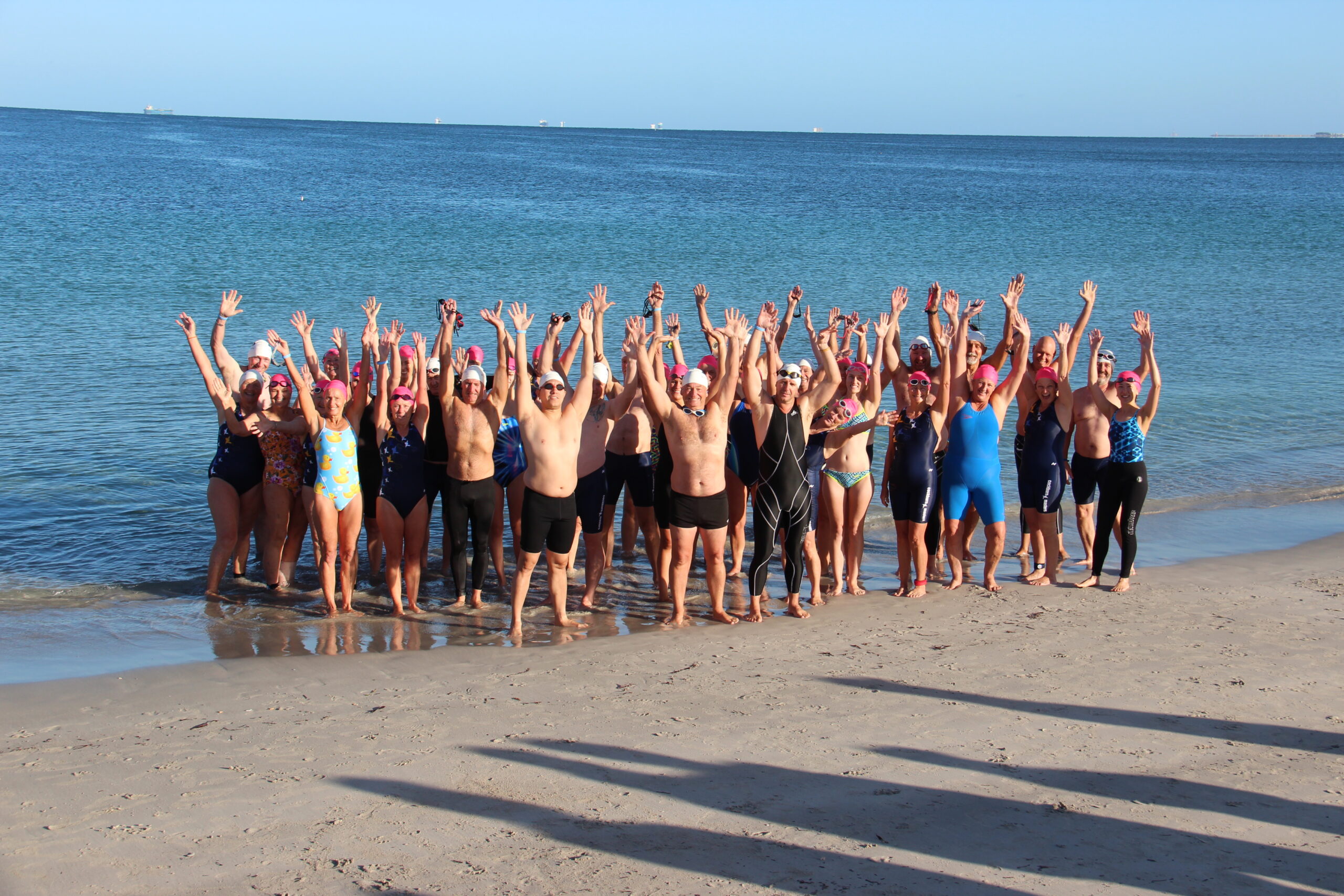With the Olympics capturing global attention, many are feeling inspired to get active, especially in sports like swimming.
Swimming is an excellent full-body workout suitable for all ages, offering numerous benefits and a lower risk of injury compared to many other forms of exercise.
For older adults, the allure of swimming is particularly strong due to its low-impact nature, which is gentle on the joints while providing a robust cardiovascular workout.
However, older swimmers must take precautions to avoid shoulder pain and injury.
Here are some physiotherapy perspectives and advice, to help older swimmers stay safe and enjoy the benefits of this sport.
Avoiding shoulder pain and injury
One common issue among older swimmers is shoulder pain, often referred to as ‘swimmer’s shoulder’.
This can result from overuse, poor technique, or pre-existing conditions such as arthritis.
Here are some key strategies to prevent shoulder problems:
Warm-up properly
Before diving into the pool, it’s crucial to warm up the muscles and joints.
A thorough warm-up increases blood flow and flexibility, reducing the risk of injury.
Dynamic stretches and light aerobic exercises can help prepare the body for swimming.
Strength training
Incorporating strength training exercises, particularly for the shoulder girdle, can enhance muscle balance and stability.
Focus on strengthening the rotator cuff muscles and scapular stabilisers.
Exercises such as external rotations, shoulder presses, and rows are beneficial.
Technique matters
Proper swimming technique is vital.
Poor form can place unnecessary stress on the shoulders.
Older swimmers should consider working with a coach or physiotherapist to refine their stroke mechanics.
This includes ensuring a balanced stroke, avoiding overreaching, and maintaining a high elbow during recovery in freestyle.
The Cockburn Masters Swimming Club offers coaching sessions that can help swimmers improve their technique and avoid injuries.
Gradual progression
It’s essential to build up swimming intensity and duration gradually.
Sudden increases in swimming volume can lead to overuse injuries.
Follow a progressive training plan that allows the body to adapt over time.
Lifecare Cockburn Physiotherapy can assist in creating a tailored plan that suits individual needs and goals.
Listen to your body
Pay attention to any signs of discomfort or pain.
Early intervention is crucial.
If shoulder pain occurs, reduce the intensity and duration of swimming sessions and consult a physiotherapist for a tailored rehabilitation program.
Lifecare Cockburn Physiotherapy offers specialised treatments for shoulder pain and can provide personalised advice to prevent further issues.
Benefits of swimming for hips and knees
Swimming is particularly advantageous for older athletes due to its low-impact nature.
Here are some specific benefits for the hips and knees:
Joint-friendly exercise
The buoyancy of water reduces the load on the joints, making swimming an ideal exercise for those with arthritis or joint pain.
It allows for movement and exercise without the risk of exacerbating joint issues.
Improved range of motion
Swimming encourages a greater range of motion in the hips and knees, which can help maintain joint flexibility and prevent stiffness.
Movements such as flutter kicks, breaststroke kicks, and treading water can enhance joint mobility.
Strengthens muscles
Swimming engages multiple muscle groups, including those around the hips and knees.
Stronger muscles provide better support for the joints, reducing the likelihood of injuries and improving overall stability.
Cardiovascular health
Regular swimming improves cardiovascular health, which is crucial for overall well-being.
A strong cardiovascular system enhances circulation, delivering more oxygen and nutrients to the joints and muscles.
Weight management
Swimming is an effective way to maintain a healthy weight.
Excess weight can place additional stress on the hips and knees, so maintaining a healthy weight through regular swimming can alleviate pressure on these joints.
In conclusion, swimming offers older athletes a fantastic way to stay active and healthy.
By taking steps to prevent shoulder injuries and understanding the benefits for hips and knees, older swimmers can enjoy this wonderful sport safely and effectively.
The Cockburn Masters Swimming Club and Lifecare Cockburn Physiotherapy provide excellent resources and support for swimmers looking to improve their technique and maintain their health.
As the Olympics inspire many to dive into the pool, let’s ensure we do so with care and awareness, reaping the numerous benefits swimming has to offer.

